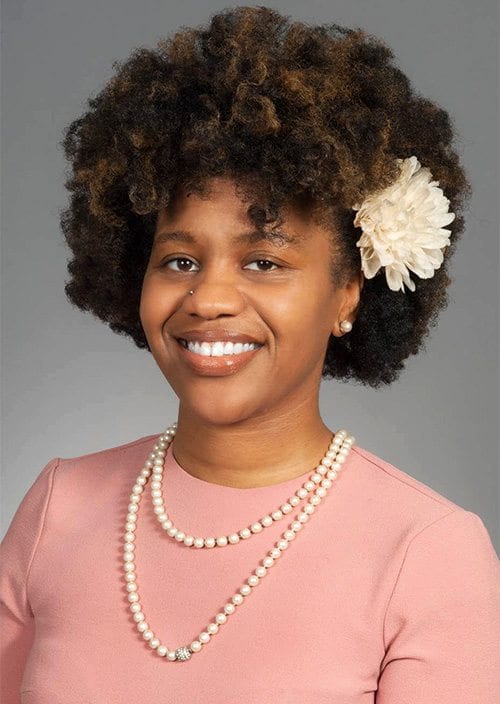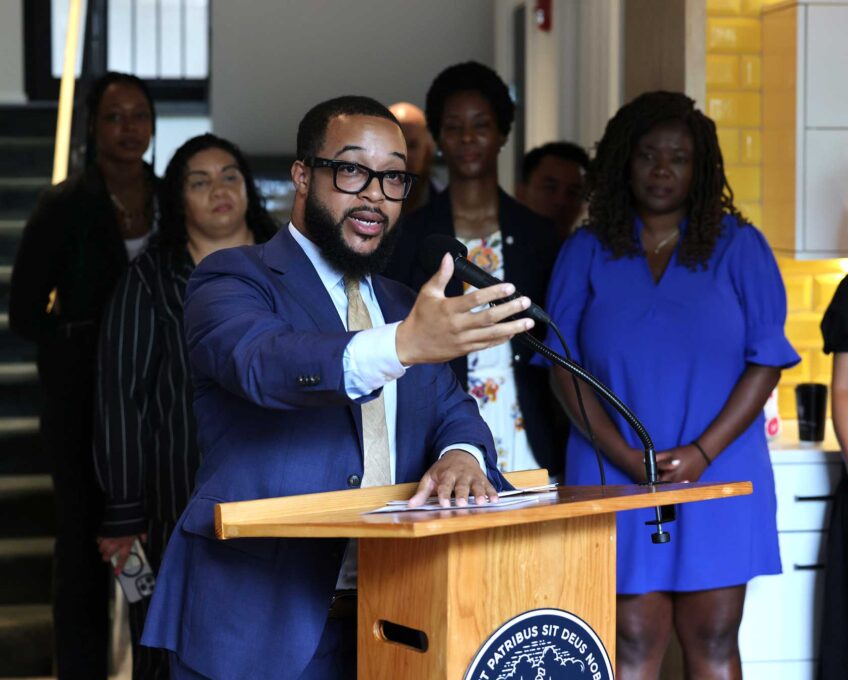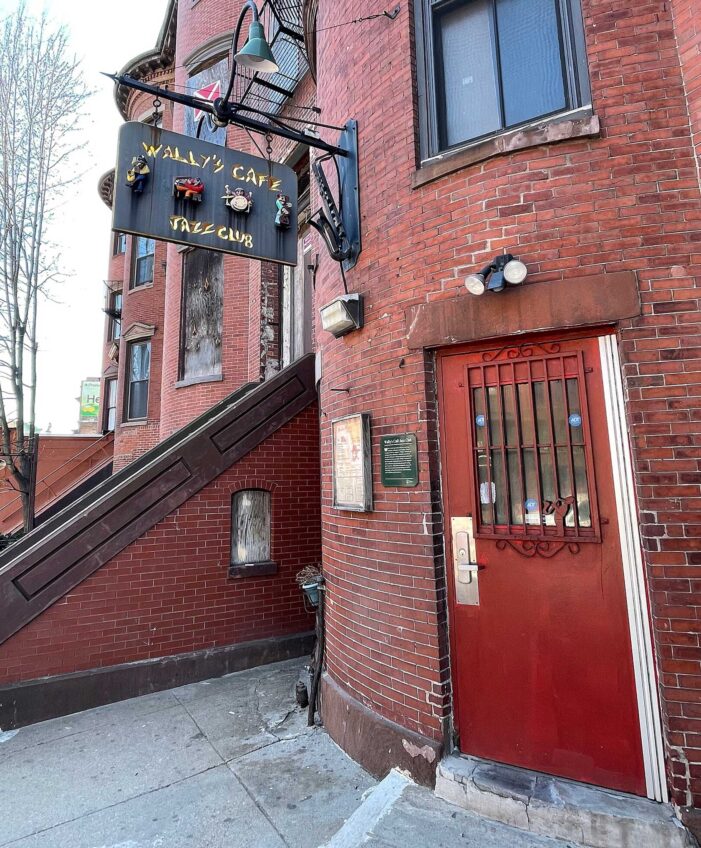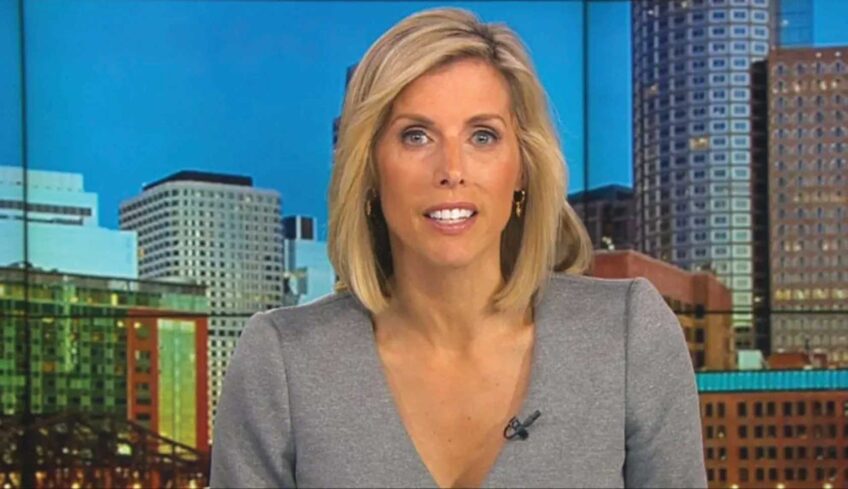Boston Chamber opens doors
Opportunity director works to advance economic inclusion

Sheena Collier joined the Greater Boston Chamber of Commerce last year as its first director of economic opportunity. She is also founder and CEO of her own business, The Collier Connection. Prior to her current job and entrepreneurial venture, Collier spent 12 years working as a community organizer, project manager and partnership builder for a number of organizations in Boston and Washington, D.C. Most recently, she was the Boston Promise Initiative director at Dudley Street Neighborhood Initiative. She spoke with the Banner by phone about the Chamber’s growing focus on racial equity in the private sector and about how her entrepreneurial and community organizing experience informs her new role.
What is your role at the Chamber of Commerce?
As director of economic opportunity, I lead and support initiatives that engage the business community in advancing economic inclusion and racial diversity in the private sector. The other efforts going on in the department of economic growth are talent retention, particularly around millennials, and industry growth — looking at the industries that are growing and working to attract them to Boston or attract them as Chamber members.
Was this a new position at Chamber of Commerce?
Yes. Everyone in my department has been there two years or less. The idea came from [Chamber of Commerce President and CEO] Jim Rooney. He was new, too. As executive director of the Massachusetts Convention Center Authority, he had already been doing work around diversity in construction and procurement for the convention center. So he was already thinking about achieving racial equity in Boston’s private sector.
We talk about income inequality a lot in Greater Boston, but when you look at statistics across employment, education, and the like, it essentially breaks down along racial lines. And with racial equity, besides the moral and civic duty part, there’s also a business imperative. You can’t attract businesses to a place if a good portion of people say they don’t feel welcome there. So Jim felt this was something the Chamber needed to take on.
What are the impediments to increasing racial diversity in Boston’s private sector?
That’s a good question. I think that one — and this could be seen as an opportunity or a challenge — is that there’s a lot of conversation around it right now. A lot of companies and groups are trying to tackle the diversity issue. On one hand, that’s really great, but on the other hand, we need those many different efforts to come together in order to really move the dial.
The business community understands this issue needs to be addressed, and it’s something the Chamber takes seriously. We are asking, “How do we focus on what we do best? What are we best positioned to actually affect?”
And what is the Chamber’s focus in this area?
I think that as the leading convener and membership organization for businesses in Greater Boston, we’re best positioned to raise awareness of issues and to be thought leaders on what the business community should be focused on.
We’re an influencer. We don’t have “authority” over businesses — we can’t obligate them to do something. But when we put out a call to businesses and say this is imperative to the economic health of the region, they listen. So I think changing the conversation is a big role we can play, and creating some shared roles for business.
What are some approaches that work?
I think it’s important to have the communities that you’re actually trying to impact included in the conversation. We started with focus groups with residents of all income levels. Who is the Chamber to come in and say “Here’s how we should help communities of color” without doing some work to talk to the actual communities? Something I took away from being an organizer is, you can’t organize without bringing in the people you’re trying to serve.
At the recent Mass Innovation Nights event in Grove Hall [focused on black-owned tech companies] you told the audience, “We are trying to not be your grandfather’s Chamber.” What did you mean by that?
We are updating to stay relevant. Having an explicit focus on racial inequity, small business and millennials is not “business as usual” for the Chamber. It’s different from how people traditionally see the Chamber, as a group of white CEOs of large companies.
What are some initiatives you’ve been able to introduce in this first year?
One area we’re focusing on is redefining talent. I’ve heard people say they can’t find candidates from diverse backgrounds, there’s not a pipeline. We don’t believe that. We are getting companies to look at access to internships through an equity lens — redefining who’s seen as a valuable candidate. We just had a Redefining Talent Summit to discuss how internships change people’s pathways and to highlight companies that are paving the way in providing good-paying internships to students from diverse backgrounds — not just diverse in terms of racial and ethnic background, but also in the institutions applicants attend. Everyone wants a Harvard or MIT student; we want them to look seriously at [community college and state university] students as well.
Another area is advancing economic inclusion — making sure everyone has the opportunity to participate in the economic life of the city, and in particular, getting mid- and large- size businesses to commit to procuring from businesses owned by people of color. We’ll be launching our Pacesetters Initiative in January with a partnership of eight area companies that are committed to using their purchasing power to provide opportunities to minority-owned business enterprises.
And one other initiative, very much in a planning phase, is a combination of my work around racial equity and the Chamber’s focus on talent attraction and retention. We have a strong program around millennials [in general], but we want to do more specifically around the experience of millennials of color.
You’re also an entrepreneur yourself, and have a community organizing background. How do those mesh with your work at the Chamber?
I consider myself a super connector, a social broker and a strategist. I’m not from Boston, but I’ve been here since 2004 and have built a strong network. So I launched The Collier Connection because I wanted to take the connections I have and help other people connect better with each other. I’m helping businesses and nonprofits to better connect their audience to their mission, brand or product, and I produce events myself, to help people connect.
People say that Boston is resource-rich, but resource-coordination-poor. I have a skill for translating info to different audiences. And that’s a big part of my role at the Chamber, too. I don’t come from the business world — I have a master’s in education, and came to this job from DSNI — but in each case, I’ve been helping connect audiences and close opportunity gaps. So that’s a transferable skill. I used to work with trying to get parents and young people to the table in education decisions. Now I’m doing something very similar for the business community, helping them figure out how to reach this new, or, I should say, historically overlooked, audience.
Have there been any surprises in your new role?
I didn’t realize how many major businesses are in Boston. This wasn’t my world, so I didn’t know what a hub this city is for innovation and major businesses. We have international delegations coming to see how we do things. So I think getting those prominent companies to invest their time and resources back into the communities of Boston is something the Chamber can influence, particularly through its lens on racial equity.
What does the Chamber of Commerce offer to non-business owners or very small businesses?
Most events are open to non-members. One of the biggest values to anyone, business owner or not, is we have a lot of speakers that come to the Chamber that give insight on things going on in Boston that you might not hear elsewhere. We had a panel on the cannabis industry, for instance. We have Senator Warren coming for a forum in November, we have our Convention for the Next Generation on October 23. So there’s access to info that I think is valuable for everyone. Personally, I have learned a lot about policy issues from listening to speakers at our events.






